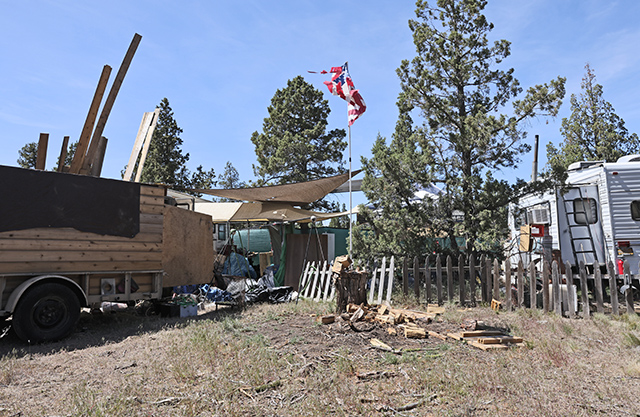Pope on gay priests: ‘Who am I to judge?’
Published 5:00 am Tuesday, July 30, 2013
ROME — For generations, homosexuality has largely been a taboo topic for the Vatican, ignored altogether or treated as “an intrinsic moral evil,” in the words of the previous pope.
In that context, brief remarks by Pope Francis suggesting that he would not judge priests for their sexual orientation, made aboard the papal airplane on the way back from his first foreign trip, to Brazil, attracted significant attention. Never veering from church doctrine opposing homosexuality, Francis did strike a more compassionate tone than that of his predecessors, some of whom had largely avoided even saying the more colloquial “gay.”
“If someone is gay and he searches for the Lord and has good will, who am I to judge?” Francis told reporters, speaking in Italian but using the English word “gay.”
Francis’ words could not have been more different from those of Benedict XVI, who in 2005 wrote that homosexuality was “a strong tendency ordered toward an intrinsic moral evil,” and an “objective disorder.” The church document said that men with “deep-seated homosexual tendencies” should not become priests.
Vatican experts were quick to point out that Francis was not suggesting that the priests or anyone else should act on their homosexual tendencies, which the church considers a sin. But the fact that he made such comments — and used the word “gay” — was nevertheless revolutionary, and likely to generate significant discussion in local dioceses, where bishops are divided over whether to accept priests who are gay but celibate.
“It’s not a great opening in terms of contents, but the fact that he talked about it that way is a great novelty,” said Paolo Rodari, a Vatican expert at the Italian daily La Repubblica. Francis would probably agree with Benedict’s writings on homosexuality, he added, “but it doesn’t interest him.”
“It interests him to say that the problem in the end isn’t if someone has this tendency, the important thing is to live in the light of God,” Rodari said. “Said by a pope, it’s enormous.”
Francis also told reporters that while Pope John Paul II had definitively closed the door to female priests, he sought a “theology of women” and a greater role for them in Catholic life, news reports said.
The pope’s comments on homosexuals and women in the church were yet another sign of the different directions from which Benedict and Francis approach doctrine. While Benedict, the shy theologian, focused more on ethics and advocated a more pure church, even if it might end up being smaller, Francis was elected for his belief that the Catholic Church must engage in dialogue with the world — even with those it disagrees with — if it wants to stay vibrant and relevant.
“At a certain point, tone becomes substance if it’s seen as revitalizing the prospects of the church,” said John Allen, a Vatican expert at The National Catholic Reporter.
In Benedict’s more subdued 2007 visit to Brazil, where evangelical churches are making rapid inroads in the Catholic majority, he delivered speeches to bishops about how to respond to post-modern society.
In contrast, Francis spoke on the beach, delved into the masses and was greeted like a rock star by followers entranced by his approachable style and homespun folksy adages. (“You can always add more water to the beans,” he said at one point.)
In 2007, “Benedict came and played the standard classical nocturne that he was famous for, and his devotees loved it. Francis came and played the guitar in his very accessible style and the crowds went wild,” said Allen, who traveled to Brazil for both trips.
Before he resigned in February, Benedict’s papacy had been marked by scandals — a sex abuse scandal, a leaks scandal and trouble with the secretive Vatican Bank. Francis, with his style of radical simplicity and his direct manner, has shifted things.
“He’s completely changed the narrative about the church,” Allen said. “In five months, now the dominant Catholic story is ‘Charismatic Pope Takes World by Storm.’”
During his papal trips, John Paul II loved to walk to the back of the plane and chat with reporters, while Benedict only responded to a handful of preselected questions. Francis, on the overnight flight back to Rome from Rio de Janeiro, spoke freely to reporters for 80 minutes about everything from the Vatican Bank troubles to his decision not to live in the Apostolic Palace but rather in a Vatican residence.
Francis did not dodge a single question, even thanking the person who prompted his comments on homosexuality, asking about Italian news reports of a “gay lobby” inside the Vatican, with clerics blackmailing one another with information about sexual missteps.
“So much is written about the gay lobby. I have yet to find on a Vatican identity card the word ‘gay,’” Francis said, chuckling. “They say there are some gay people here. I think that when we encounter a gay person, we must make the distinction between the fact of a person being gay and the fact of a lobby, because lobbies are not good.”






